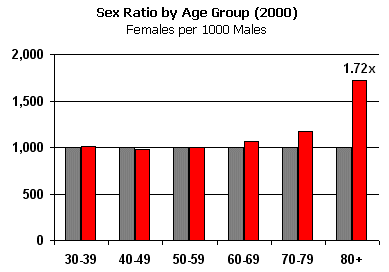-
Advocacy Theme
-
Tags
- Abortion
- Adoption
- Caregiving
- CEDAW
- Disability
- Domestic Violence
- Domestic Workers
- Harassment
- Healthcare
- Housing
- International/Regional Work
- Maintenance
- Media
- Migrant Spouses
- Migrant Workers
- Muslim Law
- National budget
- Parental Leave
- Parenthood
- Polygamy
- Population
- Race and religion
- Sexual Violence
- Sexuality Education
- Single Parents
- Social Support
- Sterilisation
- Women's Charter
Older and wiser – or just poorer?
September 26th, 2009 | Events, News, Older People and Caregiving, Poverty and Inequality
by Corinna Lim
As a woman, you are likely to outlive your husband by a good 10 years. This is because women tend to marry men who are about five years older, and on average women live five years longer than men.
But this longevity comes at a price.
Your husband is likely to get chronically ill before you do, and you may find that the family funds have been used up for his care by the time you are in need yourself.

In 2005, AWARE issued its report “Women Growing Older and Poorer” which showed that women were at risk in old age for a number of reasons, not least of all because they had much less CPF savings upon retirement.
Women tend to:
- spend more time out of the workforce to care for their dependents
- opt for less demanding jobs in order to care for dependents (“mommy track”)
- get paid less for the same work (women earn 73% of men’s wages according to the 2008 Report on Wages in Singapore by Ministry of Manpower).
As a result, by the time of retirement, the average woman is in a much weaker financial situation than the average man. The AWARE survey found that men had, on average, 69% more CPF savings than women.

All the more reason to plan
A woman’s increased vulnerability makes it important that she understands her financial situation and plans for her retirement.
Understanding her financial situation means knowing several things:
- what the family assets are: insurance (including beneficiaries), bank accounts (account details, signatories, balances), investment portfolios, properties (including mortgages);
- the family income sources, expenses and liabilities (including guarantees);
- location and content of family’s wills (including beneficiaries).
Planning for retirement means:
- ensuring that you have enough funds (savings, CPF, endowments) to maintain your living standard;
- having sufficient and appropriate insurance to cover illnesses and other emergencies.
Most women are not prepared.
An online survey conducted recently by AWARE and ipac financial advisors showed than only 10% of women were planning for retirement.
Are you among that 10%? If not, perhaps it is time to start paying attention to your long-term financial needs. It’s time to think about what you need to do to have the peace of mind that you will be financially secure in your old age.



